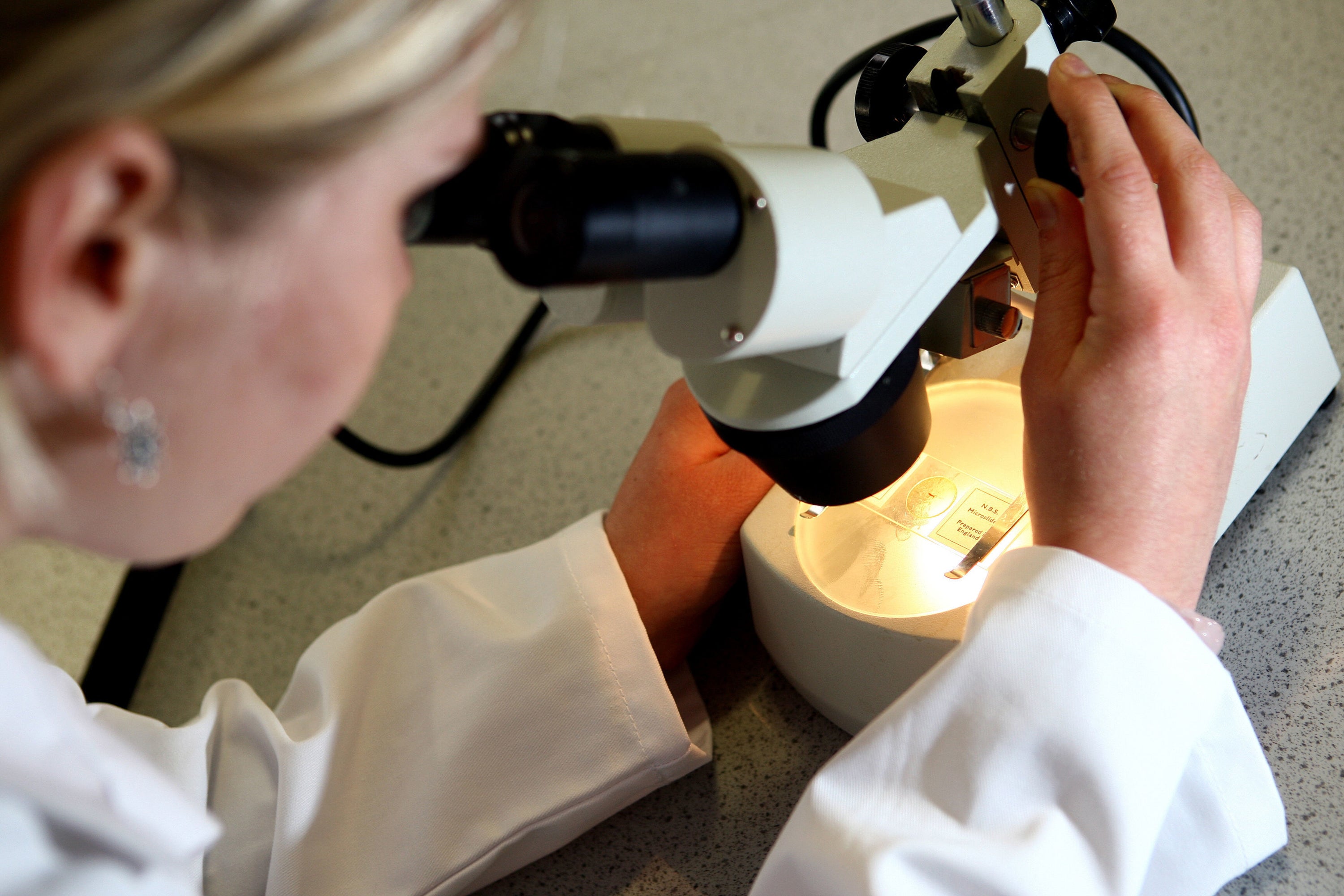Considering genetic risk ‘could improve prostate cancer referral process’
Scientists looked at the impact of incorporating genetic risk for cancer into the GP triage and referral processes

Men at the highest risk of prostate cancer could be fast-tracked for investigation if their genetic risk was considered in general practice, new research suggests.
Scientists looked at the impact of incorporating genetic risk of cancer into the GP triage and referral processes.
The research concluded that considering genetic risk could improve referrals for those in need and avoid invasive biopsy investigations for those at low risk of cancer.
They suggest that assessing genetic risk in primary care could lead to earlier diagnosis for men most at risk of prostate cancer.
Prostate cancer accounts for about a quarter of new cancer cases in men and 52,000 are diagnosed per year in the UK.
It is the second most common cause of cancer death in men in the UK and the five-year survival rate doubles if it is diagnosed at an early stage.
Not only can high-risk patients be fast tracked, but those at low risk can safely avoid invasive investigations
Symptoms are common and easily misdiagnosed, and an estimated 14% of prostate cancer deaths could be avoided if they were diagnosed earlier.
Academics at the University of Exeter said GPs make about 800,000 suspected prostate cancer referrals annually in the UK, and by incorporating genetic risk about 160,000 men could be expedited for faster investigation.
They said that by considering genetic risk, 320,000 referrals could be avoided and save men undergoing unpleasant investigations.
Lead author Dr Harry Green said: “Our study is the first to demonstrate that incorporating genetic risk into GPs’ risk assessment of patients’ symptoms of possible prostate cancer could result in faster referral for those at most risk.”
Currently a prostate specific antigen test is used to investigate men with erectile dysfunction or urination problems, but the accuracy of the test is unclear and false positive results are common.
Only one in three men with a positive antigen test have cancer and an invasive and unpleasant biopsy is often needed for diagnosis.
The team calculated genetic risk for prostate cancer using more than 250 known genetic variants linked to the disease.
Our study is the first to demonstrate that incorporating genetic risk into GPs' risk assessment of patients’ symptoms of possible prostate cancer could result in faster referral for those at most risk
These genetic variants are combined into a single “genetic risk score” which describes an individual’s genetic risk of developing prostate cancer.
They applied this to data from 6,390 white European men from UK Biobank.
Lead investigator Dr Sarah Bailey said: “This is potentially an exciting new strategy for early cancer detection.
“Not only can high-risk patients be fast tracked, but those at low risk can safely avoid invasive investigations.
“Using this technique would align well to the NHS Long Term Plan, which pledges to become the first national health care system to offer whole genome sequencing as part of routine care.
“This could be a clear example of improving early diagnosis, and therefore treatment and survival.”
Kirsten Higgins, whose family are long-term supporters of the University of Exeter, funded the study.
She said: “We’re delighted to be able to support the Exeter team to explore the application of genomics data in a more targeted approach to prostate cancer detection.
“It’s very exciting to see the real-world benefit to patients of this innovative new approach.”
– The study, Applying a genetic risk score for prostate cancer to men with lower urinary tract symptoms in primary 3 care to predict prostate cancer diagnosis: a cohort study in the UK Biobank, is published in the British Journal of Cancer.
Bookmark popover
Removed from bookmarks